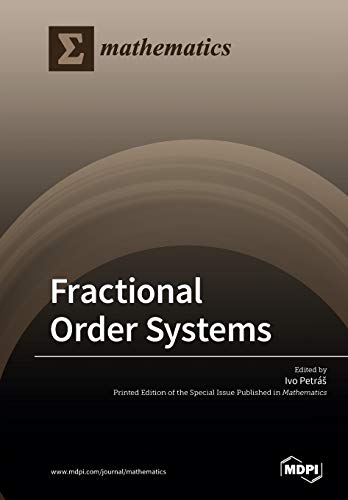

Most ebook files are in PDF format, so you can easily read them using various software such as Foxit Reader or directly on the Google Chrome browser.
Some ebook files are released by publishers in other formats such as .awz, .mobi, .epub, .fb2, etc. You may need to install specific software to read these formats on mobile/PC, such as Calibre.
Please read the tutorial at this link: https://ebookbell.com/faq
We offer FREE conversion to the popular formats you request; however, this may take some time. Therefore, right after payment, please email us, and we will try to provide the service as quickly as possible.
For some exceptional file formats or broken links (if any), please refrain from opening any disputes. Instead, email us first, and we will try to assist within a maximum of 6 hours.
EbookBell Team

4.0
16 reviewsThis book is focused on fractional order systems. Historically, fractional calculus has been recognized since the inception of regular calculus, with the first written reference dated in September 1695 in a letter from Leibniz to L’Hospital. Nowadays, fractional calculus has a wide area of applications in areas such as physics, chemistry, bioengineering, chaos theory, control systems engineering, and many others. In all those applications, we deal with fractional order systems in general. Moreover, fractional calculus plays an important role even in complex systems and therefore allows us to develop better descriptions of real-world phenomena. On that basis, fractional order systems are ubiquitous, as the whole real world around us is fractional. Due to this reason, it is urgent to consider almost all systems as fractional order systems. This Special Issue explores applications of such systems to control, synchronization, and various mathematical models, as for instance, MRI, long memory process, diffusion.